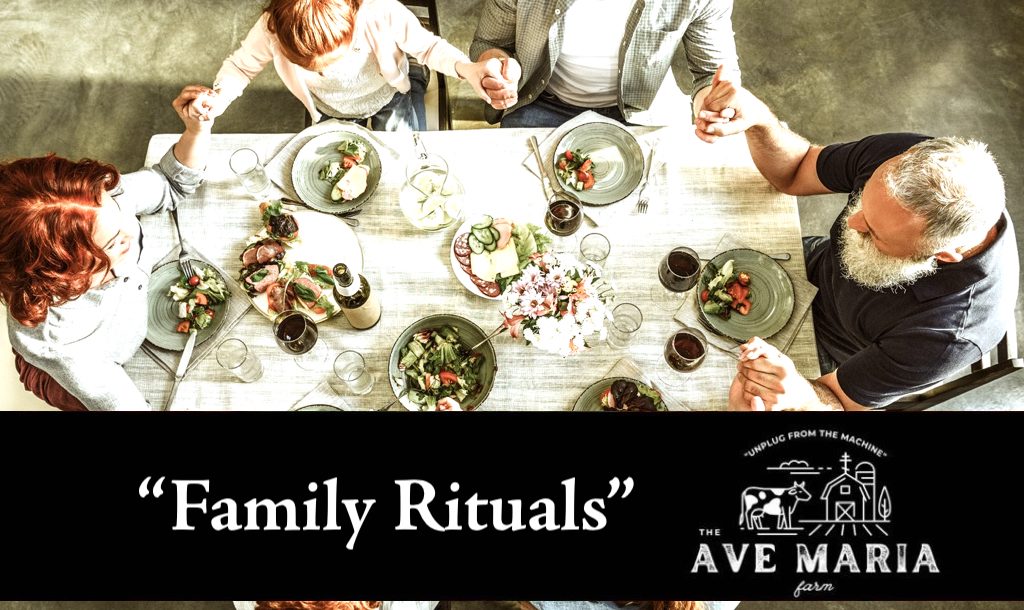Our Homes Are Our Domestic Churches
“Disorder in the sensible will echo with disorder in the spiritual” (Fr. Francis Bethel 199).
Every Christian’s home should become a “little church” — imbued with beauty, order, wholesome rituals, and focus as in the Divine Liturgy. The environment in the home shapes the kind of people we become, whether in worldliness or in kingdom-mindedness. A wholesome atmosphere should make the home a sanctuary to everyone who walks in through the front door.
We Acquire Our Humanity from Our Worship
“Do not be conformed to this world, but be transformed by the renewal of your mind” (Romans 12:2).
“We all, with open face, beholding as in a glass the glory of theLord, are changed into the same image from glory to glory” (II Corinthians 3:18).
The Church teaches us how to live first in our worship. There is nothing utilitarian. Efficiency and comfort are hardly even considered. Everything is “dressed up” as much as possible. The clergy and servers wear elaborate robes. Orthodox prayers are written in the most lofty and poetic means available in a language. The greatest attention is placed on every action, clothing, and liturgical item, aiming to direct one’s heart towards contemplation of beauty and holiness.
Orthodox worship serves three important roles (among many others). First, it gives glory to God. Second, it opens our heart to a deeper apprehension of heavenly realities. Third, it forms our souls and character. Orthodox worship makes us more regal, more noble, and more “kingly.” In Christ, each boy and girl is called to fulfill a vocation, to become a prince and princess; each adult, a king and queen.
We pray, “Let it be done on earth as it is heaven.” Orthodox worship gives us a glimpse into and invites us to participate in the same nobility and reverence in heaven.
Dressing Up and Fleeing Utilitarianism
“As a human being wears clothes because he is not a beast, so every aspect of his life should be ‘dressed up.’
“Thus, for example, it is not appropriate that a man jump on raw meat or tear it apart with his fingernails. He should cook and handsomely prepare his food, and then calmly sit, use knives, forks, spoons and napkins. Beyond that, he should not reduce eating to the utilitarian minimum, solely for health purposes as if he were merely a body. A meal is a time for communion and conversation among friends, in a celebration of God’s gifts” (Fr. Francis Bethel 199).
From Food to God
“It is ridiculous but nonetheless true that a generation which has given up the distinction between fingers and forks will find it difficult to keep the distinction between affection and sex or between the right to one’s body and the murder of one’s child. If you eat ketchup-smeared French fries with your fingers day after day, you are well on your way to the Cyclops” (John Senior, Restoration of Christian Culture 222).
The Holiness of the Dining Table
There is a Russian custom to regard every table with reverence, seeing in the table an icon of the heavenly altar. A monk once noticed a man stepping up onto a table in order to change a light bulb. “Please stop,” the monk entreated the man. “The table is an icon of the altar. Treat it with respect.” This monk’s reaction was sincerely Orthodox. His reverence for the church altar had taught him to look at all tables in reverence. Indeed, he had learned to see every part of our life as an icon and participation in divine matters. This is the quality and degree of sacredness we must learn in our daily actions.
The dining table is a good place to start, being the altar of the home. Every meal is an icon of the heavenly banquet, sacred, and formative. Our reverence around the dining table cultivates a reverence for the altar, and, ultimately, God, who is everywhere present.
This is also why table manners are so important. The manner in which we eat our food nurtures our attitude of the sacredness of each meal. Food is given us not for gluttony, but for worship. It exists not to “fuel the machine” but to foster a spirit of gratitude and celebration. Every bite should be an act of adoration. If we can learn this art, we can learn to regard all creation as a gift from God and an opportunity to give praise.
Family Dinners
Every family dinner is an extension of the Holy Liturgy and an icon of the Heavenly Banquet. Second to drinking from the Holy Chalice, the family meal is one of the most sacred moments of a day. It is a moment to step away from the busyness of life, to come together in harmony and relationship, and to be the heavenly kingdom.
Secular Studies All Highlight the Importance of Family Dinners
A great deal of research has been conducted on the importance of having family meals around a table. For instance, the National Center on Addiction and Substance Abuse at Columbia University reported these trends found in children and teenagers who share regular family dinners:
- perform better academically
- are less likely to engage in risky behaviors (drugs, alcohol, sexual activity, etc.)
- have better relationships with their parents
Rhythm of an Orthodox Home
The dining table is just one example of the ritualized life in Christ. Every aspect of our life should be a mirror of and inspiration towards heavenly life.
So, what are our daily rituals? Are they disorderly and chaotic? Are they beautiful and meaningful? If we aspire to grow in our humanity, we will have to undertake this endeavor one habit at a time.

